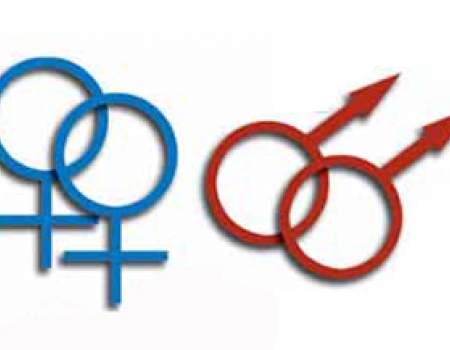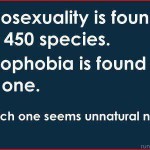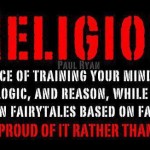This article from the BBC deserves printing almost in full
Scottish Catholic priests’ letter condemns gay marriage
Cardinal O’Brien appears to be stepping up the Catholic Church’s campaign against gay marriageRoman Catholic priests are to read out a letter in each of the Church’s parishes in Scotland criticising the Scottish government for plans to introduce gay marriage. The Church has declared 26 August as National Marriage Sunday. Last week the leader of the Church in Scotland, Cardinal Keith O’Brien, broke off personal discussions on the issue with the First Minister, Alex Salmond.
The Scottish government says it is right to introduce same-sex marriage. But it has stressed no clergy would be forced to carry out the ceremonies.
The letter criticises the Scottish government for trying to change what Cardinal O’Brien considers to be the only legitimate definition of marriage – the lifelong union of a man and a woman. The letter also announces the launch of a National Commission for Marriage and the Family to co-ordinate a campaign against gay marriage. It says: “We reaffirm before you all the common wisdom of humanity and the revealed faith of the Church that marriage is a unique life-long union of a man and a woman.” And it asks the Church’s congregation to “pray for our elected leaders, invoking the Holy Spirit on them, that they may be moved to safeguard marriage as it has always been understood, for the good of Scotland and of our society”.
Tom French, Equality Network: “The letter… is part of a wider anti-gay agenda” In March, Cardinal O’Brien described gay marriage as a “grotesque subversion of a universally accepted human right”.
The Scottish government has pledged to bring forward a bill on the issue later this year, and has indicated the earliest ceremonies could take place by the start of 2015. Same-sex couples in Scotland can already enter into civil partnerships. The Scottish government has promised to protect religious freedoms, and says any changes would not see churches forced to take part in same-sex ceremonies.
A Scottish government spokesperson said: “We intend to proceed with plans to allow same sex marriage and religious ceremonies for civil partnerships because we believe it is the right thing to do. We are equally committed to protecting religious freedom and freedom of expression, and ensuring that religious celebrants opposed to same sex marriage do not have to solemnise same sex ceremonies.”
The Equality Network, which is campaigning in support of same-sex marriage in Scotland, said politicians should stand firm over the plans. Tom French, the charity’s policy co-ordinator, said: “It is increasingly clear that the Church has an anti-gay agenda that it wants to impose on the rest of society. We urge the Scottish government to stand firm on plans to introduce equal marriage and not give in to demands that would discriminate against LGBT people.”
Other Churches in Scotland have also expressed concern about the same-sex marraige plans. The Church of Scotland has said it is concerned the Scottish government is “rushing ahead on something that affects all the people of Scotland without adequate debate and reflection”. And the Free Church of Scotland described the decision to introduce gay marriage as a “truly sad day for Scotland” and urged the Scottish government to reconsider its plans.
The UK government’s consultation on allowing civil marriages for gay and lesbian couples in England and Wales closed in June. The coalition is analysing the results before publishing its formal response, but Prime Minster David Cameron has promised legislation before the next election. There are currently no plans for similar legislation in Northern Ireland.
My views on religion are well-known, but the point here is that churches are welcome to preach and practice whatever they like on their own premises, but have no place whatever dictating policy to the rest of society. I’ve argued this especially around the Church of England, the “established” church, but you may recall Henry VIII initiated the reformation because he was fed up with the pope dictating policy and stopping him divorcing and remarrying whomsoever he chose, but the question remains why the Roman Catholic church believes it should be the sole arbiter of social policy via its own outmoded ideas.
Fine, they don’t wish to bless any gay weddings in their churches, but since no priest will ever be forced to do so against their will, why should society outside the church not have the right to set a policy enabling equality for all, regardless of sexuality?
The simple answer to that question is that the Roman Catholic church applies hate-filled medieval logic and morality to its version of social policy, which is frequently ignored silently or otherwise by its own followers (eg. its ban on contraception.) There are many who would say that its interpretation of the bible on homosexuality is inaccurate too (eg. see here and here and here), though of course there are only about 6 or 7 direct mentions in the 31,000-odd verses, and none whatever for lesbianism.
But there is a simpler explanation: the bible was written at a time when homophobia was the norm. Society and its attitudes have changed a great deal in the meantime – we are far more enlightened and understand now that homosexuality is not evil, is not a sin, is not any form of corruption of the human psyche – it’s a perfectly normal sexual preference, though residual stigma means that surveys will never accurately portray the proportion of the population that are gay, or bisexual to varying degrees – and I long for the day when footballers have the courage to come out, for example. Doesn’t stop those churches who apply aversion therapy to “cure” people of homosexuality, but then they live with the dinosaurs too.
Homosexuality is legal in the UK and has been since 1967, though it’s never been entirely the equal of heterosexual relationships: the age of consent is now 18, not 16 as with heterosexual relations, for example. And, exactly like straight couples, gay couples often want to form long-term exclusive relationships enshrined in law, adopt children and live happily ever after.
But rather than enable marriage between gay partners, Parliament chose in 2004 to fudge the issue by creating a curious legal status, the “civil partnership,” which is similar to marriage but not quite the same status – oh, and it’s only open to gay couples, though at least one heterosexual couple did try to get a civil partnership, but were turned down. There are a number of legal differences, particularly around inheritance, but more to the point if does not exactly quite the same status.
Why the difference in status if you happen to be gay? Because Parliament was trying not to offend the religious lobby. Ah, but in 2012 there appears to be strong governmental support for true gay marriages – equality regardless of sexuality – but from our PM and the Scottish First Minister, arguably the only thing on which they agree! The Anglican movement doesn’t support it but would presumably tolerate gay marriage, providing they did not have to do anything about it, but Catholicism not only opposes gay marriage but throws its toys out of the pram too, cutting off talks on other issues.
A proportion of gay people will unquestionably have religious faith, and in some churches or religions that preference with be not only tolerated but celebrated – some, indeed, have women and gay clergy (remember the argument about Jeffrey John?), while some more conservative churches would say only non-practising gays are welcome (like that adopted by a friend of mine, who is a ‘born-again Christian’.) Remember the Not The Nine O’Clock News sketch, ‘Are You A Gay Christian?’ by Rowan Atkinson by the way?
If you are Catholic and gay, however, you probably keep it quiet – and probably many hundreds do to avoid being ostracised by their chosen society of worship. I feel for those people, since they are effectively personae non-grata by a legal organisation that applies illegal prejudice in an illegal way, yet is tolerated in doing so. Let’s face facts here: this attitude is perpetrating institutional homophobia, which has no place whatever in the 21st Century. If congregations boycotted the RC church until they changed their attitudes, it would surely happen, much as goalposts have been moved in the past.
One example: bear in mind that Copernicus and Galileo were persecuted by the church for publishing manuscripts explaining the heliocentric system, since popes including Paul III, Paul V and many others declared the earth to be centre of the universe, and indeed that the earth was flat. It is now no longer heresy to believe the sun to be the centre of the universe. Maybe in future, homosexuality will be accepted as a normal variant of human preferences, but until then the church will continue to live in the dark ages.
Religious worship is a choice, but its rules come below the law every time. It should not under any circumstances be allowed to influence how a government provides human rights for all members of a society, nor should governments pander to religious movements, any more than they would pander to racist groups, for example. Ending prejudice within society is vital, and conferring equal rights to all a vital component of ending the inequality and hypocrisy of the past.
PS. The exclusion of Northern Ireland from this debate becomes more understandable when you read of the attitudes of people like Ken Maginnis.
PPS. This is beautifully ironic. 200? More like 500!!
PPPS. Since I wrote this, Cardinal O’Brien has fallen like a stone for – wait for it – giving into temptation and, apparently, engaging in gay relationship(s), though exactly what and with whom has yet to be revealed. He is fleeing Scotland, the arch hypocrite in a church stuffed full to overflowing with hypocrisy. See here and here.








